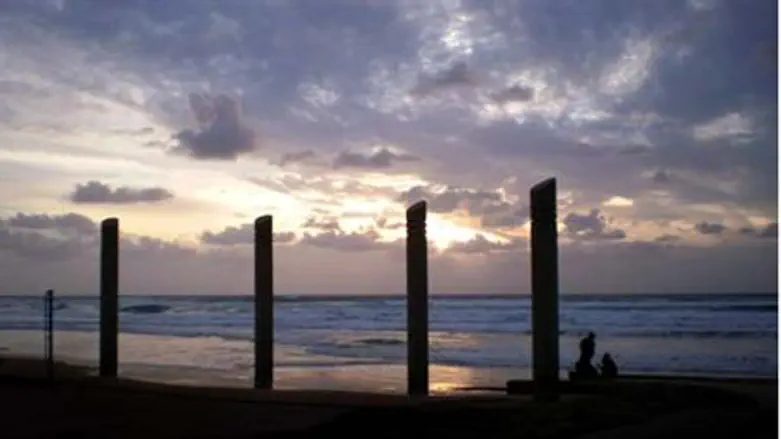
A exhibition of 26 photos taken by victims of Arab terror attacks opened this week at Rambam Hospital in Haifa. The photographs were taken by 17 terror victims who participated in a special three month long photography course offered by Rambam's social service in cooperation with Operation Embrace.
While Israel has known savage terror attacks by Arab murderers since its inception, nothing had prepared it for the massive, organized terror onslaught that began in 2000 and lasted several years, orchestrated by Palestinian Authority chief Yasser Arafat, a lifelong terrorist whom the Israeli government had welcomed into Judea, Samaria and Gaza in the conviction he had turned into a peacemaker.
Israelis soon became acquainted with a series of ghoulish terror militias that vied with each other over the number of innocent Jewish men, women and children they could kill and maim. Terrorists easily infiltrated Israel's major cities and carried out suicide attacks against civilians in buses, hotels, restaurants and shopping malls. Day after day, newscasts reported fresh lists of names of people who were killed: families on holiday outings; tourists at a Passover Seder; youth outside a discotheque; men, women and children on buses, who were instantly turned into charred and bleeding corpses.
While the number of that war's victims is larger than in some of the other wars in Israel's history, the war does not even have an official name yet. It is referred to by some as the “Second Intifadah” – an Arabic phrase that is preferred by the war's perpetrators – and by others as the Oslo War, after the agreements that allowed the terrorist infrastructure to enter Judea, Samaria and Gaza and organize there.
The workshop was taught by photographer Gustavo Hochman.
Selected photographs:
"Things one sees from here, one does not see from there.” Photographer: Carmit Ron, who lost her entire family in the attack on the Matza Restaurant, March 31 2002. Carmit lost her husband, Aviel Ron; her daughter Anat, 21; and her son Ofer, who was 17.

"Yefeh Nof boardwalk in the Carmel." Photographer: Gideon Zilberstein, who lost his wife in the attack on the Maxim Restaurant on October 4 2003.

"Enjoying Life” and “Beauty on an Overcast Day” by Giora Bernstein, who was wounded when a bus in front of the one he was driving exploded on December 2, 2001. 17 people were killed in the attack.


"Overcast Winter Day” by Leah Lichterman. Leah's son Gideon was killed when Arab gunmen ambushed his car on May 5 1983. His daughter was hit in the head and has rehabilitated herself, and another soldier was badly hurt and is still in the process of rehabilitation.

“Peace and Tranquility on the Beach,” by Margalit Elmakayes. In the attack on the Maxim Restaurant on October 4, 2003, she lost her daughter, Keren, a grandson aged 4 and a granddaughter aged 14 months, her son in law and his mother.

“Life on the Horizon,” by Shimon Elmakayes. In the attack on the Maxim Restaurant on October 4, 2003, he lost his daughter, Keren, a grandson aged 4 and a granddaughter aged 14 months, his son-in-law and his son-in-law's mother.

Two photographs by Nurit Menchel, who lost her daughter, Danielle, 22, in the Matza Restaurant massacre, March 31 2002.


“When the beauty of the landscape hits us” and “Street photograph of a resting man,” by Vered Ben-Ami. She suffered emotional trauma during a missile attack in the Second Lebanon War.


Photograph by Yehoshua Eckst:
